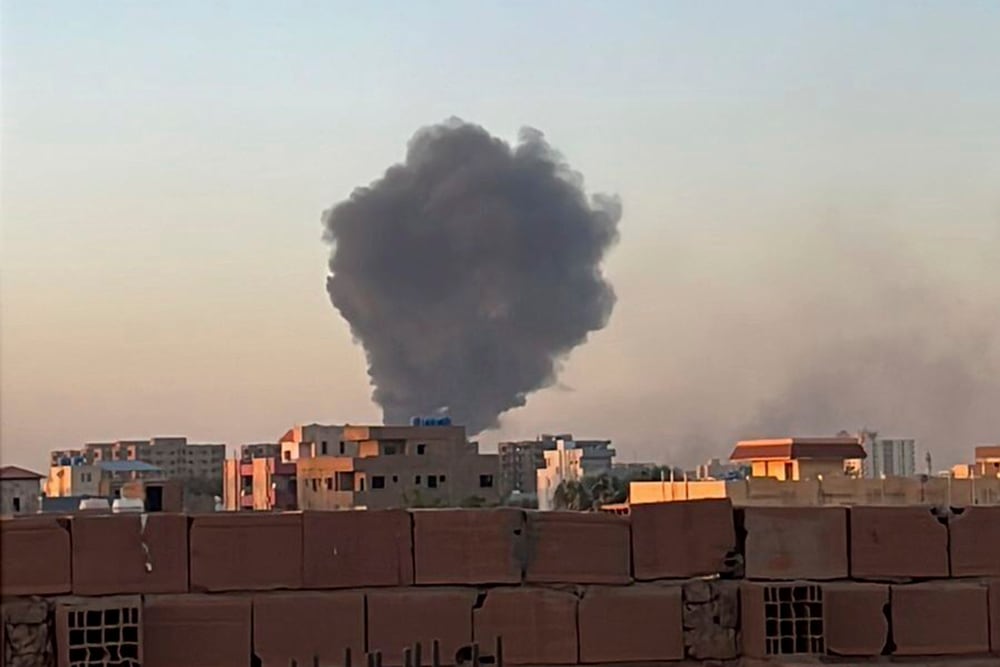U.S. special operations forces carried out a precarious evacuation of the American embassy in warring Sudan on Sunday, sweeping in and out of the capital, Khartoum, with helicopters on the ground for less than an hour. No shots were fired and no major casualties were reported.
With the last U.S. employee of the embassy out, Washington shuttered the U.S. mission in Khartoum indefinitely. Left behind were thousands of private American citizens remaining in the east African country.
U.S. officials said it would be too dangerous to carry out a broader evacuation mission. Battles between two rival Sudanese commanders entered their ninth day Sunday, forcing continued closing of the main international airport and leaving roads out of the country in control of armed men. Fighting has killed more than 400 people.
In a statement thanking the troops, President Joe Biden said he was receiving regular reports from his team on efforts to assist remaining Americans in Sudan “to the extent possible.”
He also called for the end to “unconscionable” violence there.
About 100 U.S. troops in three MH-47 helicopters carried out the operation. They airlifted all of roughly 70 remaining American employees from a landing zone at the embassy to an undisclosed location in Ethiopia. Ethiopia also provided overflight and refueling support, said Molly Phee, assistant secretary of state for African affairs.
Biden said Djibouti, Ethiopia, and Saudi Arabia also assisted with the evacuation.
“I am proud of the extraordinary commitment of our Embassy staff, who performed their duties with courage and professionalism and embodied America’s friendship and connection with the people of Sudan,” Biden said in a statement. “I am grateful for the unmatched skill of our service members who successfully brought them to safety.”
U.S. Africa Command and Chairman of the Joint Chiefs Gen. Mark Milley were in contact with both warring factions before and during the operation to ensure that U.S. forces would have safe passage to conduct the evacuation. However, John Bass, a U.S. undersecretary of state, denied claims by one faction, Sudan’s paramilitary Rapid Security Forces, that it assisted in the U.S. evacuation.
“They cooperated to the extent that they did not fire on our service members in the course of the operation,” Bass said.
Biden had ordered American troops to evacuate embassy personnel after receiving a recommendation from his national security team, with no end in sight to the fighting.
“This tragic violence in Sudan has already cost the lives of hundreds of innocent civilians. It’s unconscionable and it must stop,” Biden said. “The belligerent parties must implement an immediate and unconditional ceasefire, allow unhindered humanitarian access, and respect the will of the people of Sudan.”
Sudan’s fighting broke out April 15 between two commanders who just 18 months earlier jointly orchestrated a military coup to derail the nation’s transition to democracy.
The ongoing power struggle now between the armed forces chief, Gen. Abdel-Fattah Burhan, and the head of the Rapid Support Forces paramilitary group, Gen. Mohammed Hamdan Dagalo, has millions of Sudanese cowering inside their homes, hiding from explosions, gunfire and looting.
The violence has included an unprovoked attack on an American diplomatic convoy and numerous incidents in which foreign diplomats and aid workers were killed, injured or assaulted.
An estimated 16,000 private U.S. citizens are registered with the embassy as being in Sudan. The figure is rough because not all Americans register with embassy or say when they depart.
The embassy issued an alert earlier Saturday cautioning that “due to the uncertain security situation in Khartoum and closure of the airport, it is not currently safe to undertake a U.S. government-coordinated evacuation of private U.S. citizens.”
The U.S. evacuation planning for American employees of the embassy got underway in earnest on Monday after the embassy convoy was attacked in Khartoum. The Pentagon confirmed on Friday that U.S. troops were being moved to Camp Lemonnier in Djibouti ahead of a possible evacuation.
Saudi Arabia announced the successful repatriation of some of its citizens on Saturday, sharing footage of Saudi nationals and other foreigners welcomed with chocolate and flowers as they stepped off an apparent evacuation ship at the Saudi port of Jeddah.
Embassy evacuations conducted by the U.S. military are relatively rare and usually take place only under extreme conditions.
When it orders an embassy to draw down staff or suspend operations, the State Department prefers to have its personnel leave on commercial transportation if that is an option.
When the embassy in Kyiv temporarily closed just before Russia’s invasion of Ukraine in February, 2022, staffers used commercial transport to leave.
However, in several other recent cases, notably in Afghanistan in 2021, conditions made commercial departures impossible or extremely hazardous. U.S. troops accompanied personnel from the U.S. Embassy in Tripoli, Libya, in an overland convoy to Tunisia when they evacuated in 2014.





